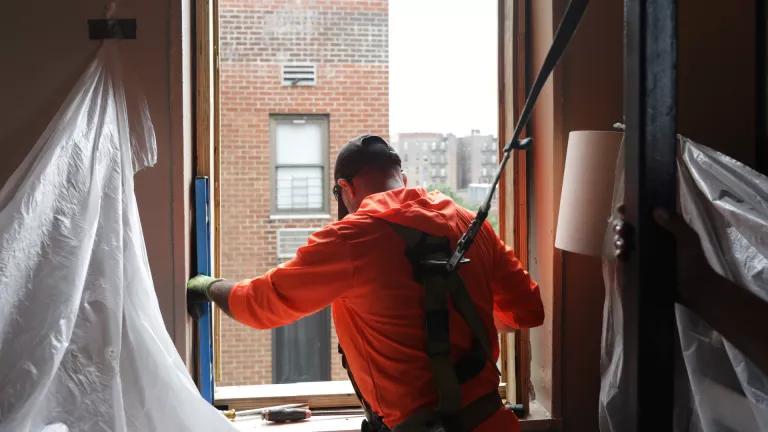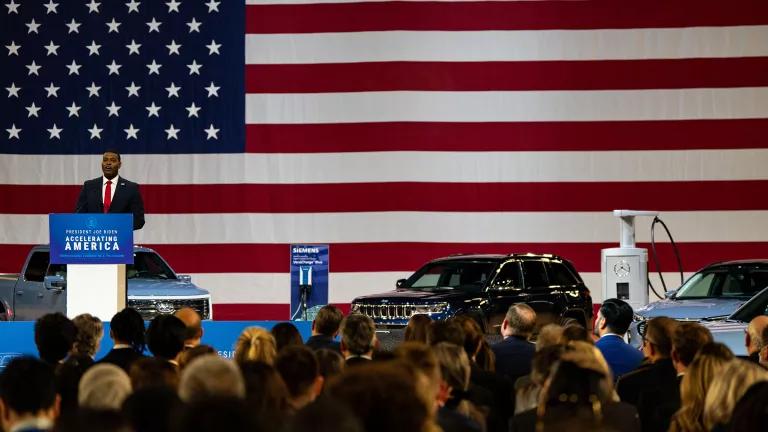
Virginia's Coastline Communities Are Now Less Imperiled by Costly Sea-level Rise, Thanks to the Virginia DEQ's Rule to Phase Out Climate Superpollutants
The state of Virginia just took a key action to stem the costly climate change that already uniquely imperils the Commonwealth with sea level rise, in addition to worsening extreme weather, drought, and human health threats. The Virginia Department of Environmental Quality (DEQ) just made official a smart rule to shift the state away from using hydrofluorocarbons (HFCs), the powerful climate pollutants used as refrigerants, foam-blowing agents, and aerosol propellants. Pound for pound, these potent greenhouse gases harm the climate thousands of times more than carbon dioxide. As a result, even in small concentrations they induce significant climate warming.
Thankfully, the DEQ put forth a good regulation that will help protect human safety from climate change: starting on January 1, 2022, a key set of climate-damaging HFC-containing products and equipment will be gradually prohibited. The rule sensibly provides a reasonable transition period for industry to phase-in climate-friendlier substitutes, in areas like commercial refrigeration, insulating foams, building chillers, and aerosol products.
DEQ’s rule mirrors a set of prohibitions that were initially promulgated federally by the U.S. Environmental Protection Agency (EPA) in 2015 and 2016 that were then partially revoked by the courts. Hence the need for Virginia and other states to pick up the rules themselves. The prohibitions focus on a number of applications that were deemed technologically ready to transition to better, climate-friendlier alternatives. The EPA maintains a list of approved alternatives to HFCs for each of the application regulated which serves as a guide for manufacturers in Virginia - and across the United States - who are transitioning their products away from the most potent HFCs.
The DEQ’s strong, sensible regulation is a key example of why tackling climate change is not just an imperative for anyone concerned with human safety and long-term fiscal and economic health. Climate action also makes great business sense: by implementing unified rules across 11 states taking similarly decisive climate action, industry can prosper by developing and offering for sale the same new climate-friendly products, nationwide.
That good business sense also goes for climate action across the board: in the energy sector, energy efficiency lowers electric bills and power plant pollution, and in transportation, Virginia’s recently-passed Clean Cars law gives automakers a chance to sell better and cleaner cars and finally get into the exciting electric vehicle market in a meaningful way. Simply put, what’s good for the climate and human health is also good for business and the economy.
Virginia’s leadership on phasing down HFCs also matters at the national level: states played a crucial role over the past 4 years picking up the mantle when HFC policies at the federal level faced uncertainty, or in some cases were rolled-backed. HFC action helped states advance toward their climate targets by mitigating HFC emissions and reducing reliance on HFCs in the regulated applications. Since most manufacturers supply the nation at large, the state rules initiated a shift in manufacturing practices across the country which in turn has helped keep HFC use in check as we were preparing for a national supply phase down of HFCs (one of our older posts here explains the functional difference between state and federal HFC rules).
Now, that national supply phase down is underway: In December of 2020, EPA received a clear mandate from Congress to phase down the economy-wide supply of HFCs by 85% over the next 15 years. States like Virginia, with product prohibitions in place, stand ready for a prompt and orderly transition away from these harmful gases as the economy-wide phasedown progresses.
These are great news for the fight against climate change, but Virginia still has work to do on HFCs.
Building codes are currently impeding the market penetration of several climate-friendlier refrigerants in Virginia because they’re classified as moderately flammable. Industry now knows how to safely use these refrigerants in air conditioning equipment and heat pumps, and the appropriate safeguards have been incorporated in the safety standards that inform state building codes. Virginia’s building codes should be updated to allow for the safe use of refrigerants already approved by EPA.
It’s a hopeful time here in Virginia for taking action on climate, with more important progress – especially to clean up transportation pollution – on the horizon. If the DEQ’s recent success on HFCs is any indication, Virginians can look forward to not just even cleaner air and better safety, but greater prosperity as well.





